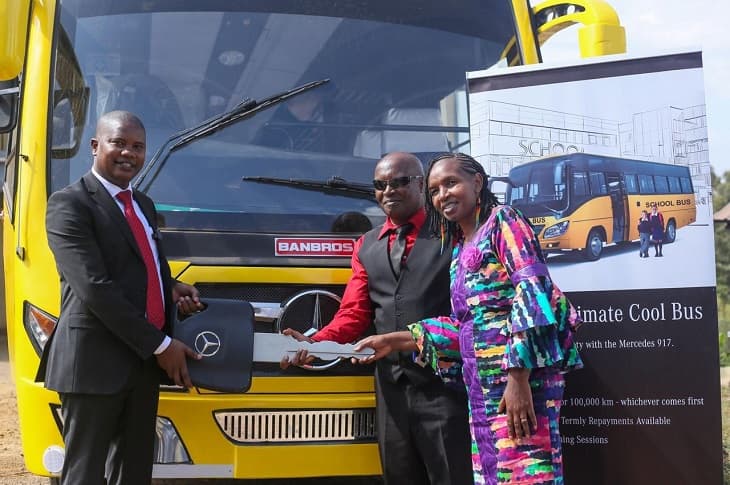We're loading the full news article for you. This includes the article content, images, author information, and related articles.
The initiative by the non-bank lender aims to bridge critical infrastructure gaps in Kenya's rapidly growing private education sector, promoting sustainability amid rising operational costs and national funding shortfalls.

NAIROBI, KENYA – Digital lender MyCredit Limited has launched a specialized financing initiative aimed at helping Kenyan private schools upgrade infrastructure, expand facilities, and transition to sustainable energy. The move addresses a critical funding gap in the nation's burgeoning private education sector, which has seen exponential growth due to rising demand and capacity limitations in public institutions.
The financing solution, branded 'Kuza Elimu', provides tailored loans of up to KSh 10 million per institution, with a flexible repayment period of up to 72 months (six years). The capital is intended for a range of needs, including the construction of new classrooms, purchasing of school buses, investment in modern educational technologies, and the adoption of green energy solutions like solar power and biogas systems.
Kenya's private school sector has expanded dramatically over the past two decades. According to data from the Kenya National Bureau of Statistics (KNBS), the number of private primary schools grew by a staggering 773% between 2003 and 2017, while private secondary schools increased by 216% over the same period. This growth is largely a response to the strain on public schools, which face significant infrastructure and funding challenges.
However, private institutions face their own set of financial hurdles. Access to affordable, long-term credit for capital-intensive projects remains a primary obstacle. This is compounded by rising operational costs, particularly for electricity. A 2019 report from the Kenya Secondary Schools Heads Association (KESSHA) indicated that schools were spending an average of KSh 500,000 per month on power bills, with some exceeding KSh 900,000. These high costs divert funds that could otherwise be invested in improving educational quality.
The national education landscape is also strained. In February 2025, the Principal Secretary for Basic Education, Belio Kipsang, revealed a KSh 27 billion funding gap across public primary and secondary schools, further highlighting the sector-wide financial pressures.
MyCredit's initiative introduces a significant green financing component, enabling schools to invest in renewable energy sources. By financing solar panels and biogas digesters, the lender aims to help schools reduce their reliance on the national grid, lower recurrent energy expenditures, and promote environmental sustainability. This aligns with broader national and global efforts to integrate sustainable practices into all sectors, including education.
"By offering customized loan solutions, we aim to reduce the financial barriers that many private schools face," said David Wangai, Executive Director of MyCredit Limited, in a statement released in April 2025. "This will help schools improve operations, expand their capacity, and continue delivering quality education to students across the country."
The focus on green energy is particularly timely. A pilot project by the Ministry of Energy and Petroleum, called 'Powering Education', recently audited 100 schools and found that over 40% of light fittings were inefficient fluorescent lamps, identifying significant opportunities for cost savings through retrofitting and solar installations.
The entry of non-bank financial institutions (NBFIs) like MyCredit into specialized sectors such as education underscores a growing trend in Kenya's financial landscape. These institutions often provide more flexible and accessible credit solutions compared to traditional banks, filling a crucial gap for small and medium-sized enterprises (SMEs), including private schools. MyCredit, which is licensed by the Central Bank of Kenya (CBK) as a Digital Credit Provider, has been actively expanding its support for the education sector.
In November 2025, MyCredit also signed a KSh 1.2 billion Memorandum of Understanding with Enkisoma Africa Limited to finance digital transformation in private schools, targeting the acquisition of computer labs, software, and other digital tools. This earlier initiative, coupled with the new funding for infrastructure and green energy, positions the lender as a key player in the modernization of Kenya's private education system.
This comprehensive financing approach—covering infrastructure, technology, and sustainability—is poised to have a significant impact. By enabling schools to invest in critical upgrades, the initiative not only supports their financial health but also contributes to enhancing the overall learning environment for thousands of students across Kenya, aligning with the national vision of providing quality education for all.
Keep the conversation in one place—threads here stay linked to the story and in the forums.
Sign in to start a discussion
Start a conversation about this story and keep it linked here.
Other hot threads
E-sports and Gaming Community in Kenya
Active 9 months ago
The Role of Technology in Modern Agriculture (AgriTech)
Active 9 months ago
Popular Recreational Activities Across Counties
Active 9 months ago
Investing in Youth Sports Development Programs
Active 9 months ago